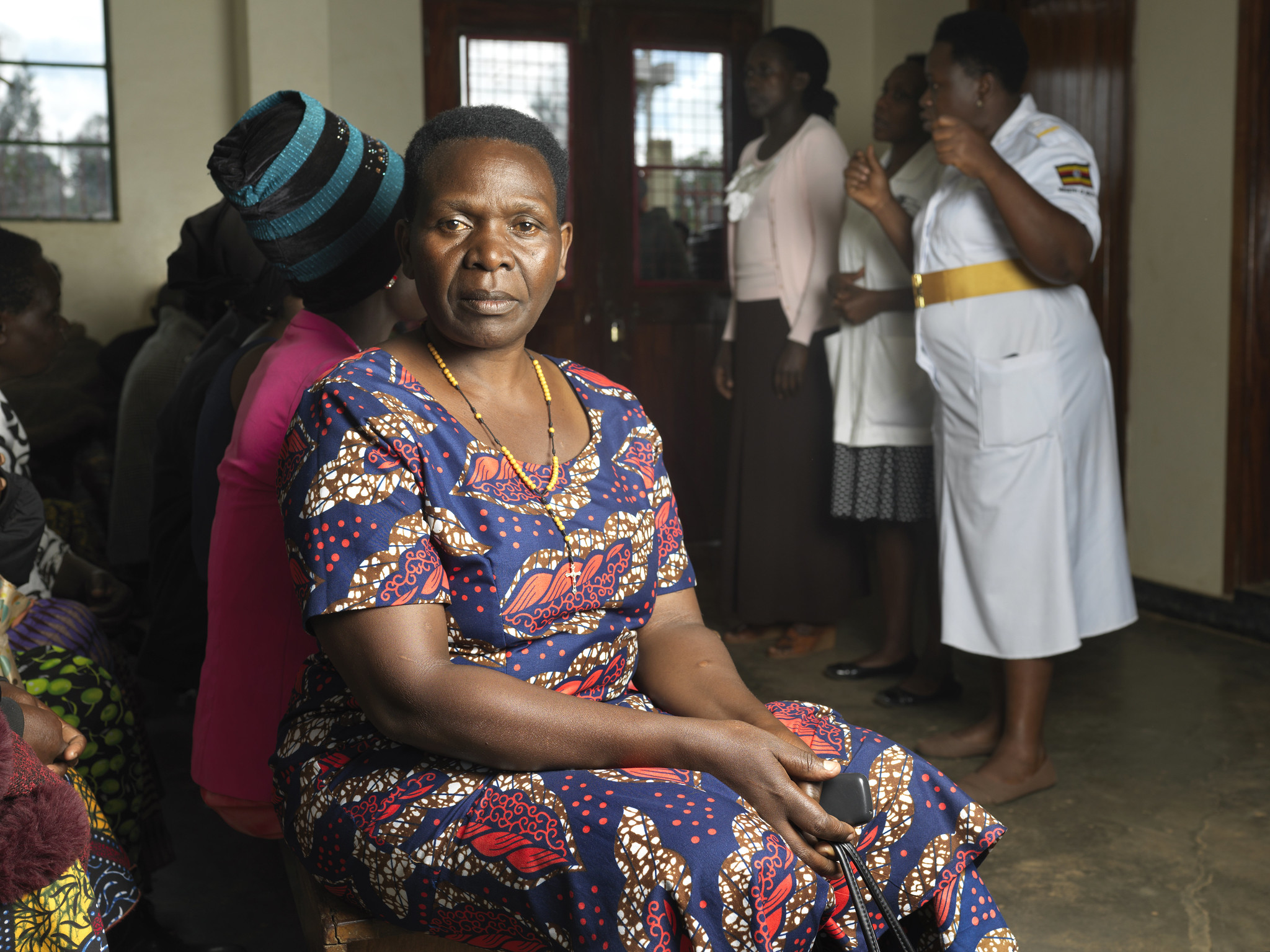How a nurse helped a Ugandan mother find a reason to live.
When Margaret Kugonza looked in the mirror, she saw a woman waiting to die. Her despondency over an HIV diagnosis had left her bereft. “I had a grocery shop that kept me busy during the day, but my thoughts kept me awake at night,” says the mother of four. “I could not eat or sleep because of thinking about the children and my future.”
Although she had started antiretroviral therapy at a clinic close to her home in western Uganda, her reason to live seemed to dissipate by the day. She closed her shop. “I felt useless and stopped taking the medication,” she says. “I wanted to end my life. One day I took poison, but my aged mother found me and called for help. She begged me to go for counseling.”
It was at the Fort Portal Regional Referral Hospital that Kugonza met nurse Biira Levinah, an assistant psychiatric nursing officer. “She got my attention when she looked straight into my eyes and said, ‘Margaret, I want you to live.’ ”
Levinah had been trained in the Common Elements Treatment Approach (CETA), which helps health workers in low- and middle-income settings integrate evaluation and diagnosis for depression, anxiety, substance abuse, and trauma- and stress-related disorders into HIV care and treatment.
“She asked me to call her whenever I had bad thoughts,” Kugonza says, recalling that they would often walk together during counseling sessions.
“I would be dead if it wasn’t for Biira’s support.”
The nurse is one of 55 CETA-trained counselors working at seven health facilities in western Uganda. Their training was supported by the Jhpiego-led Global Reach II project, funded by the American Rescue Plan Act through the U.S. Health Resources and Services Administration, in partnership with the Uganda Ministry of Health, Mental Health and Substance Abuse Division. “In a setting where resources are scarce, our commitment to integrating mental health services into HIV care isn’t just about treating conditions; it’s about empowering individuals,” says Jhpiego Program Officer Charles Mwanje, who oversees CETA’s implementation in Uganda.
Despite progress in HIV testing and treatment, Uganda faces challenges in viral suppression due to prevalent mental disorders; depression affects up to 30 percent of people living with HIV and the risk of death by suicide is 100 times higher for them than in the general population.
Trained to use a number of approaches for managing a range of mental health conditions, Levinah used a cognitive restructuring approach called “Think in a Different Way” to help Kugonza recognize self-defeating thoughts and then counter them while developing solutions. The darkness lifted.
“I would be dead if it wasn’t for Biira’s support,” says Kugonza. “She guided me to see myself again. The way I think about myself has changed.”
Josephine Watuulo and Joan Nduta
Josephine Watuulo is knowledge management coordinator in Jhpiego’s Uganda office and Joan Nduta is senior communications manager for the Africa Region. Maryalice Yakutchik, senior writer with Jhpiego, also contributed to this article. Photo by Peter Caton for Jhpiego.

